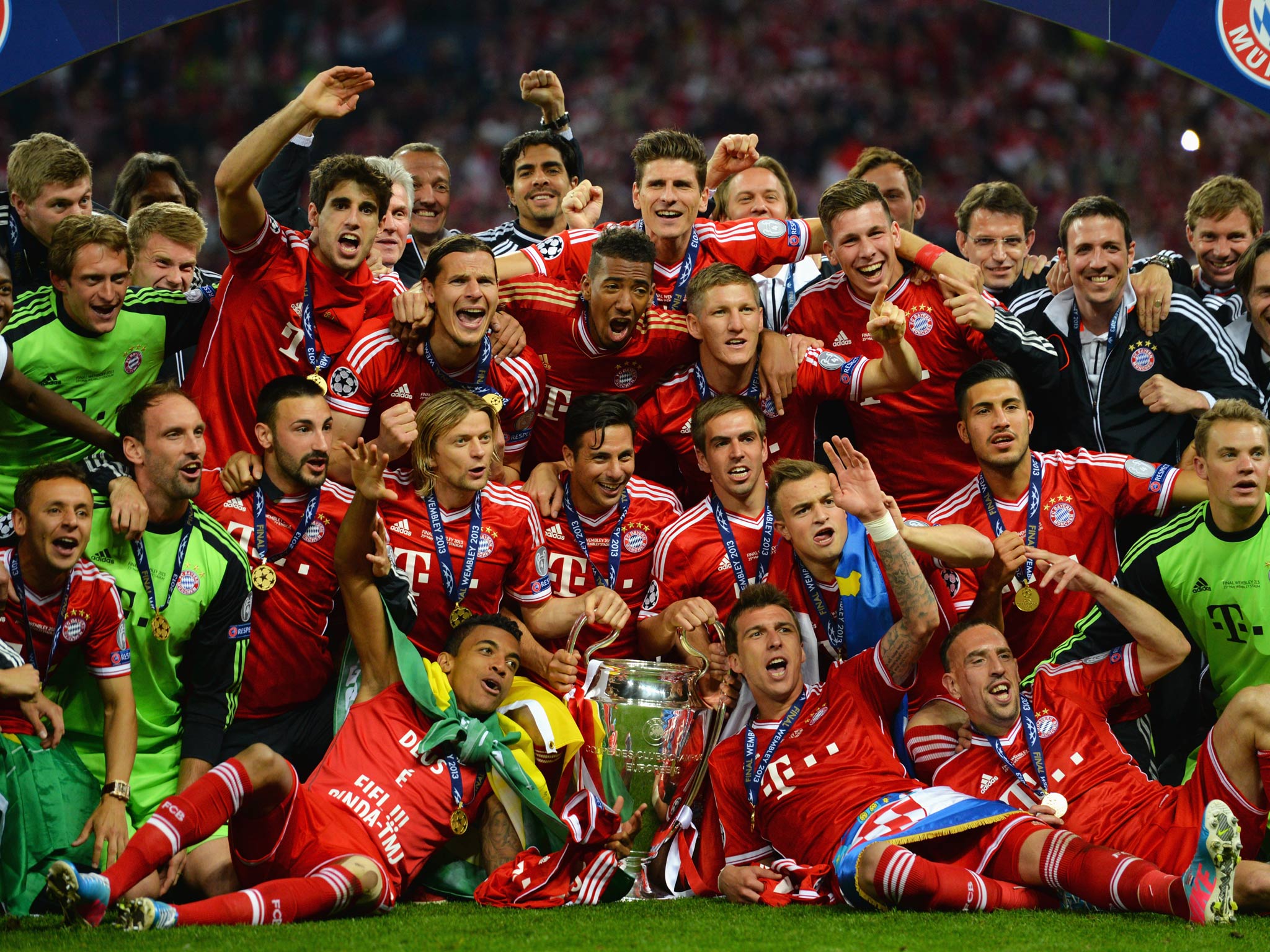It’s BT 1 and Sky 0 as they fight it out in TV football’s big match
With BT’s grabbing of the live Champions League matches for a whistle-inducing £900m - we’ve a genuine, red-blooded contest to sit back and savour


Your support helps us to tell the story
From reproductive rights to climate change to Big Tech, The Independent is on the ground when the story is developing. Whether it's investigating the financials of Elon Musk's pro-Trump PAC or producing our latest documentary, 'The A Word', which shines a light on the American women fighting for reproductive rights, we know how important it is to parse out the facts from the messaging.
At such a critical moment in US history, we need reporters on the ground. Your donation allows us to keep sending journalists to speak to both sides of the story.
The Independent is trusted by Americans across the entire political spectrum. And unlike many other quality news outlets, we choose not to lock Americans out of our reporting and analysis with paywalls. We believe quality journalism should be available to everyone, paid for by those who can afford it.
Your support makes all the difference.Whenever I meet City old-timers, the talk turns, inevitably to the “good old days” – of hostile takeovers and bitter rivalries. Business today, we moan, is oh so polite, in public anyway, with bids, if there are any, all agreed and cosy, and everyone getting on like a house on fire.
Thank God then, for BT and Sky. Suddenly, with BT’s grabbing of the live Champions League matches for a whistle-inducing £900m we’ve a genuine, red-blooded contest to sit back and savour.
Who will win? If you’d asked me that question as recently as a few weeks ago I would have said Sky for sure. They had all the snapping fury handed down to them by their founder Rupert Murdoch, theirs was a sheer aggression that brooked no opposition.
But then I met Sir Mike Rake, the BT chairman, and I was not so certain. When I said going for football TV rights (last year BT bought the ability to show 38 Premier League games a season and has since followed up by giving football away free to its broadband customers) was a desperate, defensive play by BT, the boss visibly bristled. “No. What we did with the Olympics last year [BT was a London 2012 sponsor] was part of an extremely well-thought-through strategy. Football was a follow-on to that. We took the view that Sky can use our infrastructure but it won’t sell us content at wholesale prices. Therefore we thought we had to do it ourselves and put our money where our mouth is.”
Sir Mike added: “Our team has done very well. We’re managing it, we’re creating competition. Sky has been a fantastically successful company, but we believe the playing field has not been level, and now we’re going to level it.”
As he said this last bit, he was grinning. I took two messages from the encounter: any notion that BT was not pursuing a deliberate plan was wrong; second, he and his colleagues are fully determined.
It’s been too easy to under-estimate BT and to an extent, Sir Mike. BT, the sleepy, formerly state-owned land-line provider; owner of moribund telephone exchanges; a has-been in comparison to the slicker, new players. Sir Mike, its accountant chairman, the latest president of the CBI, itself an organisation that smacks more of padded establishment comfort than tooth and claw scrapping.
Even BT, however, could not sit back and do nothing as Sky started destroying its subscriber base with the “triple play” offering of TV, broadband and home phone. To make it worse, where once Sky had relied on satellite dishes to reach customers, now it was using cabling installed by that very same BT.
The come-ons for those signing up to Sky were movies and sport. Relying on technology to stem the tide was not enough – people put hardware second and the ability to watch films and football first.
What’s clear from Sir Mike is that BT treated the Olympics as a warming-up exercise, a soft launch of its new approach. If the company’s involvement in the Games had been a flop there might have been a rethink. As it was, the decision to back London 2012, taken by Sir Mike and the then CEO Ian Livingston, and masterminded in practice by Livingston’s successor Gavin Patterson, soon proved to be an unalloyed triumph.
BT was the official communication services partner. This saw the firm host the London 2012 website which had more than 450m visits – four times the number that went on the previous Beijing Games site. While this and other statistics for broadband and mobile traffic were impressive, BT went further, creating live big-screen sites in parks across the country and laying on free music concerts from the likes of Blur and Snow Patrol. These, and more, earned BT a largely unnoticed accolade. According to a TLG/Populus survey, politicians and business leaders named BT as the company that made the greatest corporate contribution to the success of the Games, and it came second in terms of greatest positive change to its reputation as a result of sponsoring the Games.
Patterson describes London 2012 as a “light bulb moment”. It was a warning Sky would have done well to heed.
Join our commenting forum
Join thought-provoking conversations, follow other Independent readers and see their replies
Comments